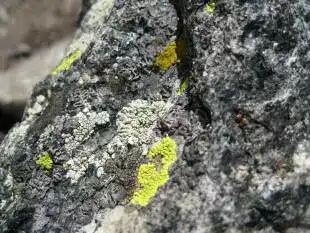Fungi Plus Bacteria in Your Garden
Fungi plus Bacteria in your garden are the biological engines for the plant world. Nitrogen would not be converted into water-soluble plant food without bacteria and fungi. Nor would there be nutrients available for plants. There would be little or no defenses for the plants to wart off other pathogens that destroy root systems and the plants themselves.
Listen to the latest information about fungi in the soil. You need to know this. The narrative is about 30 minutes. Enjoy, enlighten, and educate.
Fungi

Mycorrhizal is one of the main ingredients to bring the growing medium back to a healthy state. Ensure that one particular fungi group is in our soils and around our plants.
Mycorrhizal means “fungus-roots” and explains the close, mutually beneficial relationship between specialized soil fungi and plant roots.
About 95% of the earth’s land plants form or need the fungi relationship in their native habitats. The fungi are responsible for increasing a thousandfold soil capacity compared to roots alone. Some of the benefits of this fungus include:
- Improved nutrient and water uptake
- Better root growth
- larger plants and yield
- Better disease resistance
- Less transplant shock
- Less drought stress
The fungi collect more nutrients and water from the soil in exchange for the sugar they need to live and grow. They extend long threads called hyphae that transport phosphorus and other nutrients into the plant roots. It also enables plants to use water more efficiently and resist pests.
Bacteria
Below are the four primary forms of bacteria.
Decomposing bacteria consume simple carbon compounds. This process converts energy in the soil’s organic matter into forms applicable to the rest of the organisms.
Decomposing bacteria is essential in stopping or retaining nutrients in their cells, thus preventing the loss of nutrients, such as nitrogen, from the rooting zone.
The second form of bacteria is mutualism, which forms partnerships with plants. The most well-known of these are the nitrogen-fixing bacteria.
Pathogens compose the third group. Pathogens cause most fatal diseases in both plants and animals illnesses.

The fourth group is lithotrophs (meaning rock eaters) or chemoautotrophs (which can synthesize all the organic compounds they need from inorganic raw materials without sunlight). They obtain energy from nitrogen, sulfur, iron, or hydrogen instead of carbon compounds.
Certain soil bacteria strains have an anti-fungal activity that inhibits some plant pathogens (disease-causing organisms). As a result, those strains can increase plant growth in several ways. They may produce a compound that inhibits pathogens’ growth or reduces plant invasion by a pathogen. They may also make growth factors that directly increase plant growth.
With all this information, you can promote the growth of good fungi and bacteria. Unfortunately, developing our garden system’s correct balance and habitat has taken a while.
I have developed a unique blend of organic teas to stock your garden with abundant fungi and bacteria that promote healthy, disease-resistant plants.
